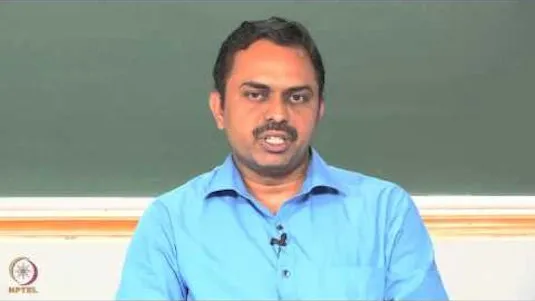
Analysis and Modeling of Welding 
This course provides an in-depth understanding of welding processes and their associated physical phenomena. It covers analysis and modeling techniques for welding processes, including heat transfer, fluid flow, and stress analysis. Students will gain an understanding of the fundamentals of welding and the associated physical phenomena, and will be able to apply the analysis and modeling techniques to welding processes. ▼
ADVERTISEMENT
Course Feature
![]() Cost:
Cost:
Free
![]() Provider:
Provider:
Swayam
![]() Certificate:
Certificate:
No Information
![]() Language:
Language:
English
![]() Start Date:
Start Date:
6th Aug, 2018
Course Overview
❗The content presented here is sourced directly from Swayam platform. For comprehensive course details, including enrollment information, simply click on the 'Go to class' link on our website.
Updated in [May 25th, 2023]
This course, Analysis and Modeling of Welding, provides an overview of the welding process and its associated physical phenomena. It covers topics such as welding metallurgy, welding process parameters, welding defects, welding process modeling, and welding process optimization. The course also provides an introduction to the fundamentals of welding metallurgy, welding process parameters, welding defects, welding process modeling, and welding process optimization. Students will gain an understanding of the physical phenomena that take place during welding and the associated modeling techniques. They will also learn how to optimize the welding process for improved performance. Upon completion of the course, students will have a comprehensive understanding of the welding process and its associated physical phenomena.
[Applications]
The application of the course can be seen in the development of welding processes for different materials and geometries. The knowledge gained from the course can be used to develop welding processes that are more efficient and cost-effective. The course can also be used to develop welding processes that are more reliable and have better performance. Additionally, the course can be used to develop welding processes that are more environmentally friendly. Finally, the course can be used to develop welding processes that are more suitable for automated welding systems.
[Career Paths]
1. Welding Engineer: Welding Engineers are responsible for designing, developing, and testing welding processes and equipment. They must have a strong understanding of welding principles and be able to apply them to the design and development of welding processes. They must also be able to troubleshoot welding problems and develop solutions. The demand for Welding Engineers is expected to grow as the need for more efficient and cost-effective welding processes increases.
2. Welding Technician: Welding Technicians are responsible for the operation and maintenance of welding equipment. They must have a strong understanding of welding principles and be able to apply them to the operation and maintenance of welding equipment. They must also be able to troubleshoot welding problems and develop solutions. The demand for Welding Technicians is expected to grow as the need for more efficient and cost-effective welding processes increases.
3. Welding Inspector: Welding Inspectors are responsible for inspecting welds to ensure they meet quality standards. They must have a strong understanding of welding principles and be able to apply them to the inspection of welds. They must also be able to troubleshoot welding problems and develop solutions. The demand for Welding Inspectors is expected to grow as the need for more efficient and cost-effective welding processes increases.
4. Welding Educator: Welding Educators are responsible for teaching welding principles and techniques to students. They must have a strong understanding of welding principles and be able to apply them to the teaching of welding. They must also be able to troubleshoot welding problems and develop solutions. The demand for Welding Educators is expected to grow as the need for more efficient and cost-effective welding processes increases.
[Education Paths]
1. Bachelor of Science in Welding Engineering: This degree program provides students with a comprehensive understanding of welding engineering principles and practices. Students learn about welding processes, materials, and safety, as well as the design and fabrication of welded components. The program also covers topics such as welding metallurgy, welding automation, and welding inspection. As the demand for welders increases, this degree program is becoming increasingly popular.
2. Master of Science in Welding Engineering: This degree program provides students with advanced knowledge and skills in welding engineering. Students learn about welding processes, materials, and safety, as well as the design and fabrication of welded components. The program also covers topics such as welding metallurgy, welding automation, and welding inspection. This degree program is becoming increasingly popular as the demand for welders increases.
3. Doctor of Philosophy in Welding Engineering: This degree program provides students with an in-depth understanding of welding engineering principles and practices. Students learn about welding processes, materials, and safety, as well as the design and fabrication of welded components. The program also covers topics such as welding metallurgy, welding automation, and welding inspection. This degree program is becoming increasingly popular as the demand for welders increases and as the need for advanced research in welding engineering grows.
4. Certificate in Welding Engineering: This certificate program provides students with a basic understanding of welding engineering principles and practices. Students learn about welding processes, materials, and safety, as well as the design and fabrication of welded components. The program also covers topics such as welding metallurgy, welding automation, and welding inspection. This certificate program is becoming increasingly popular as the demand for welders increases and as the need for basic welding engineering knowledge grows.
Course Provider
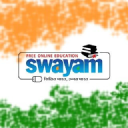
Provider Swayam's Stats at AZClass
Discussion and Reviews
0.0 (Based on 0 reviews)
Explore Similar Online Courses

Securing Linux Systems
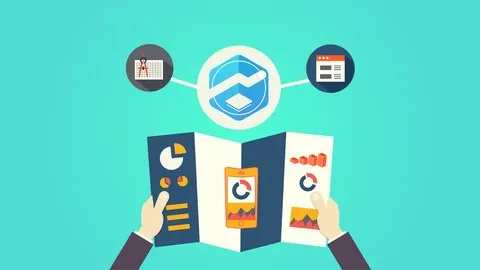
Free Ionic Tutorial - Rapid Prototyping with Ionic: Build a Data-Driven Mobile App

Python for Informatics: Exploring Information

Social Network Analysis

Introduction to Systematic Review and Meta-Analysis

The Analytics Edge

DCO042 - Python For Informatics

Causal Diagrams: Draw Your Assumptions Before Your Conclusions

Whole genome sequencing of bacterial genomes - tools and applications

Welding Safety
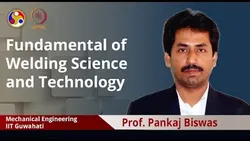
Fundamental of Welding Science and Technology
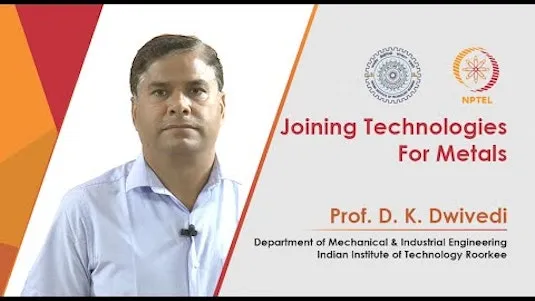

Start your review of Analysis and Modeling of Welding